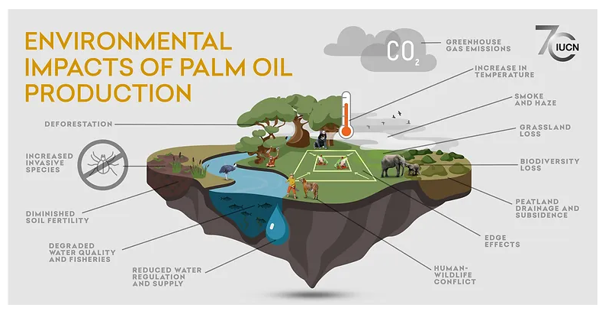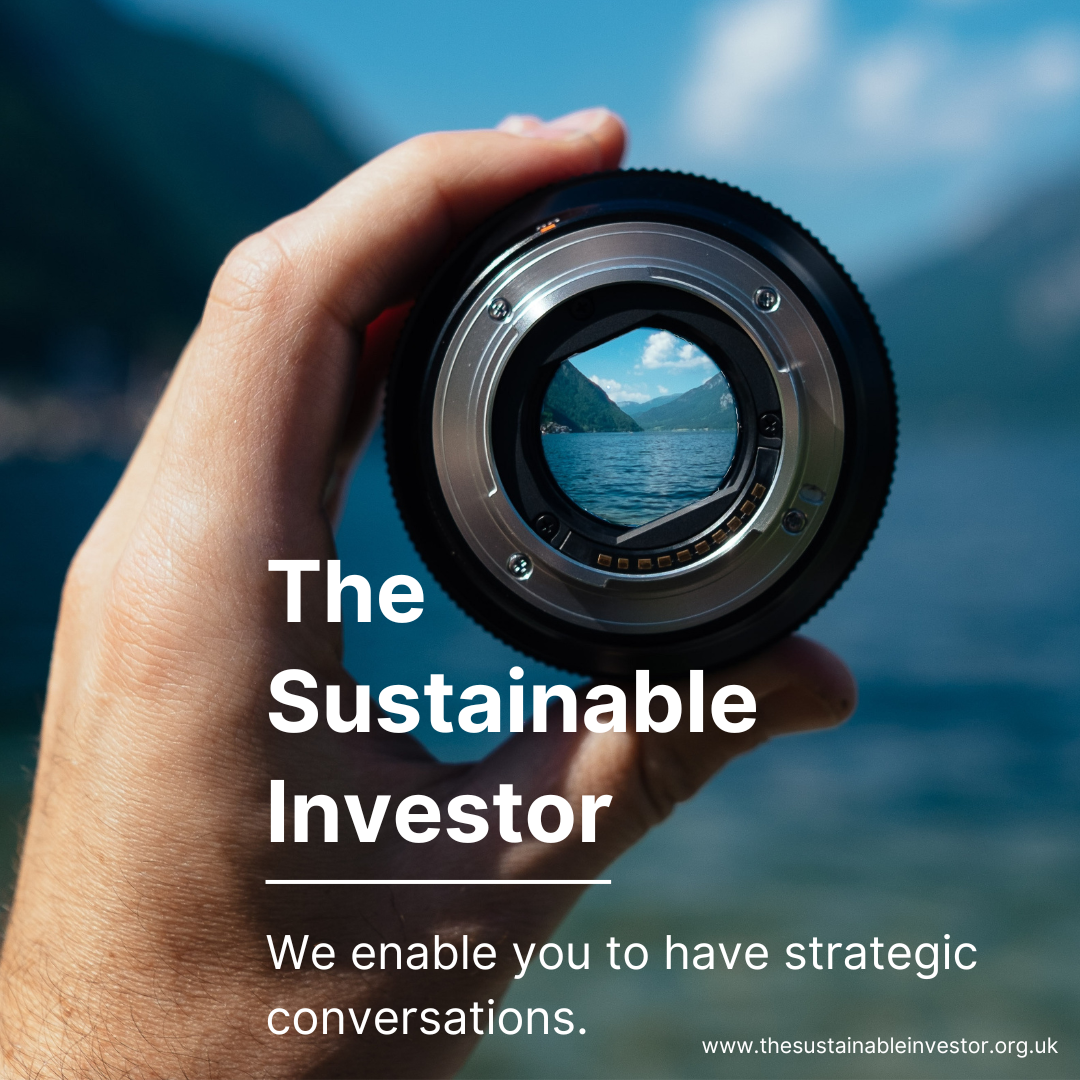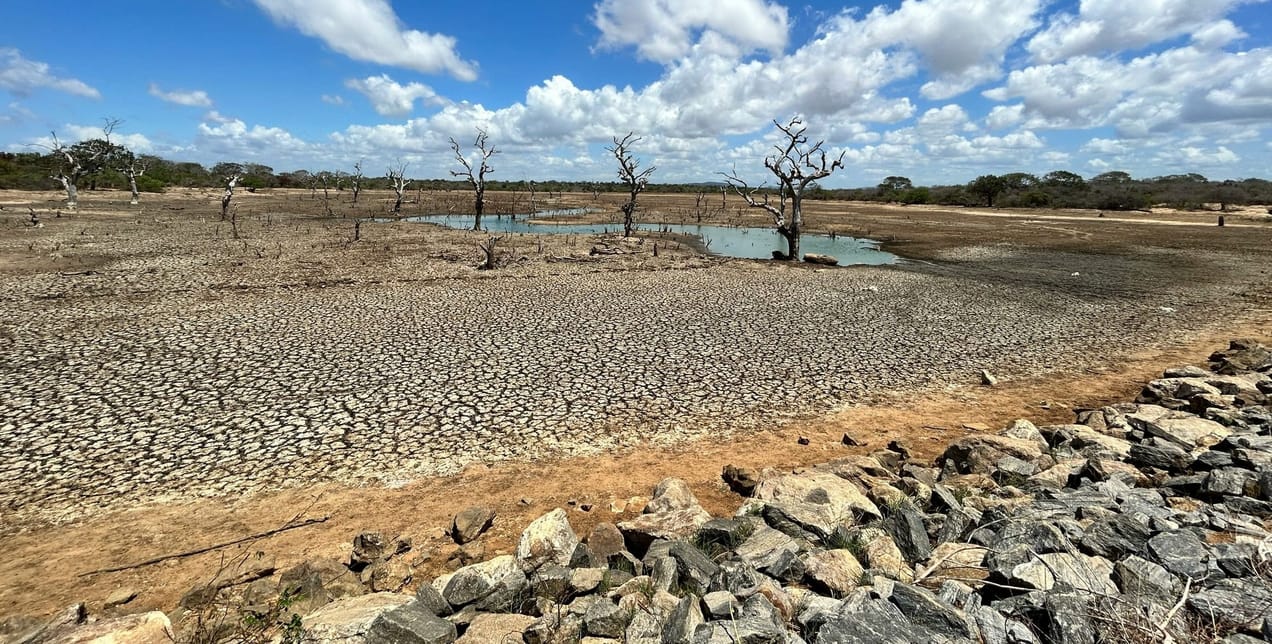
Is the outlook for palm oil getting better?
In the last two decades, palm oil has become an environmental boogeyman, for very good reasons. But, the story of palm oil is changing — seemingly for the better.
Summary: Palm oil used to be thought as one of the villains of the agricultural industry. Damaging to both the environment and the communities in which it is grown. And while some of this is still true, change for the better is starting to happen. This change is not due to a single measure, its a result of a series of moves, some small, some larger. Palm oil is a real world example of how, by reflecting the complexity of the situation, we can start to find meaningful solutions.
Why this is important: There is no single silver bullet to fix most challenges, it's going to take a mixture of lots of smaller changes, hard graft, and work on the ground. Palm oil illustrates this rather nicely.
The big theme: Agriculture is massively important. Without it billions would starve. But our modern agricultural system is also destructive, to the environment and to our social systems. Finding the balance is important. We need to grow foods efficiently and at scale, but at the same time we need to materially reduce the negative impacts. There is no simple single solution, its going to be a series of steps that get us to where we need to be in the future.

The details
Summary of a story from Vox
Palm oil once destroyed orangutan-filled rainforests in Southeast Asia. Now, the industry is cleaning up its act. In the last two decades, palm oil has become an environmental boogeyman, an ingredient that conscious consumers should try to avoid. Over the last decade, the amount of deforestation caused by the industry has actually declined nearly every year in Indonesia, the world’s largest producer. And in 2021, it hit a 22-year low.
Malaysia has seen a similarly positive trend, experts say, indicating that companies are now cutting down fewer trees. “I don’t want to sit here and say that the palm oil industry has suddenly become shiny green and sustainable, but it’s mostly stopped deforestation,” said Glenn Hurowitz, the founder and CEO of Mighty Earth, an environmental advocacy group. The story of palm oil is changing — seemingly for the better.
Let's look at why this is important...
Why this is important
In global terms, agriculture is a significant contributor to greenhouse gas emissions. The IPCC's Special Report on Climate Change and Land (2019) estimates that agriculture is directly responsible for up to 8.5% of all greenhouse gas emissions with a further 14.5% coming from land use change (mainly deforestation in the developing world to clear land for food production). And on top of this agriculture can create negative impacts on local communities and biodiversity.
Unless you have been living under a rock, you will probably know that palm oil is “bad for the environment and bad for human rights”. The challenge is, what can be done that doesn’t make the problem worse. The good news is that the work that has been done over the last decade seems to finally be making a difference. Yes, there is a lot that still needs to be done, but we have a framework to build from.
In a recent long blog we talked about how we thought the discussion around ESG had become too simplistic, how we needed to better reflect the complexity of the real world. There is no single silver bullet to fix most challenges, it's going to take a mixture of lots of smaller changes, hard graft, and work on the ground. Palm oil illustrates this rather nicely.
Let's first start with the negative impacts, of which there are many. The graphic below shows the important ones.

The challenge is that it's an extremely versatile product. It is semi-solid at room temperature so can keep spreads spreadable, and it’s resistant to oxidation so can give products a longer shelf-life. Plus, it’s stable at high temperatures so helps to give fried products a crispy and crunchy texture; and it’s also odourless and colourless so doesn’t alter the look or smell of food products. In Asian and African countries, palm oil is also used widely as a cooking oil.
As a result it’s in nearly everything – it’s in close to 50% of the packaged products we find in supermarkets, everything from pizza, doughnuts and chocolate, to deodorant, shampoo, toothpaste and lipstick.
And just to make it an especially difficult challenge to fix, palm oil is an incredibly efficient crop, producing more oil per land area than any other equivalent vegetable oil crop. Globally, palm oil supplies 40% of the world’s vegetable oil demand on just under 6% of the land used to produce all vegetable oils. To get the same amount of alternative oils like soybean, coconut, or sunflower oil you would need anything between 4 and 10 times more land, which would just shift the problem to other parts of the world and threaten other habitats, species and communities. And, our demand for palm oil seems to be growing.
So, its harmful, but its hard to do without. And yet, over an extended period of time, a number of agencies and organisations seem to have built positive traction at making it more sustainable. After a shaky start, the Roundtable on Sustainable Palm Oil (RSPO) has built some real credibility around standards, focused on halting deforestation, treating communities and workers fairly, and protecting wildlife and the environment. Palm oil they accredit now accounts for about 19 percent of global palm oil, a good start (but still not enough). To be clear, these are not high level standards, they reflect very detailed on the ground work and monitoring.
In its recent palm oil scorecard report, the WWF (who are one of the NGO’s supporting the RSPO) highlighted a number of major FMCG companies that have strengthened their supply chains. These include Mars (21/24), Beiersdorf (20/24) and Estee Lauder (19/24). There is clearly a lot more that can be done, as the WWF says .. “Palm oil buyers are still not demonstrating the kind of transformative action that is required to halt the destruction of the world’s most vitally important forests and natural ecosystems. With an average score of 13.2 points out of 24, companies have a long way to go in showing they are serious about delivering palm oil supply chains that are free of deforestation, ecosystem conversion and human rights abuse.”
And, in a recent blog, analysis from TheTreeMap showed that in 2022, Indonesia experienced its second-lowest annual deforestation caused by industrial palm oil production, following a record 22-year low in 2021. Industrial plantations grew by just 59,965 hectares in 2022, a 29% decrease from the previous year. The picture is not perfect, with satellite imagery showing an increase in deforestation in Papua, the country’s final frontier.
Of course, a slower rate of deforestation is not the same as no deforestation, or even better, a shift to reforestation or mixed use agriculture. But the trend is moving in the right direction. On that topic, the international campaign Palm Done Right is working with farmers to grow oil palm in mixed-use agroforestry settings in South America, incorporating regenerative agriculture. So less monoculture, with its negative environmental impacts.
And on that subject, there is much discussion around natural substitutes, of which one of the most promising is coconut. This is unlikely to become a total replacement, but it can also help at the margins. As the Pulitzer Center said in a recent 2020 report …”Meanwhile, coconut farms, grown primarily by smallholders, are mixed with crops like banana, cacao, and coffee, and farmers then often integrate them with the surrounding tropical landscapes. Coconut plantations look and feel more natural than oil palm plantations”.
But standards and shifts in behaviour by growers can only go so far. We also need pressure on the users of palm oil. On the “ social pressure leading to regulatory action” side, last year the European Union agreed on a landmark law to prevent companies from selling palm oil and a handful of other commodities in the European Union if they’re grown on land where forests were recently cleared. And public pressure in the UK means that as of 2019, 70% of the total palm oil imports to the UK were sustainable. Plus, in France, the US, Canada, Australia and New Zealand, an app is available that enables consumers to check on how sustainable products in their supermarket are, before they buy.
Finally, work is being done on alternatives. For instance, Unilever and Genomatica, a biotech company, have launched a venture to scale and commercialise alternatives to palm oil and fossil fuel-derived cleansing ingredients.
The bottom line is that there is not one simple answer, its mostly “all of the above”.
Something a little more bespoke?
Get in touch if there is a particular topic you would like us to write on. Just for you.
Contact us
Please read: important legal stuff.

